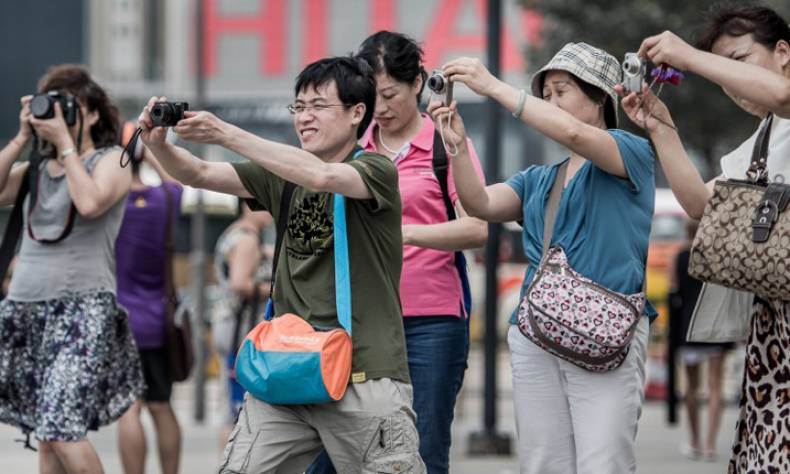
China’s Misbehaving Tourists: How to Solve the Problem?
As the Chinese National Holiday is coming upon, China, one of the world’s biggest tourism markets, is again ready to contribute a huge number of travelers to the global tourism market. For the famous resorts all over the world, the number would probably mean economic benefits. Whereas China, ironically, is facing pressure about the potential problems just because of the large number of the oversea travelers.
Last week, The Chinese embassy in Canada published a traveling notice to all travelers heading for Canada. The notice asks that tourists act well-behaved in public and be aware of their security as well as cultural differences.The notice again sparked off the tension about the antics of Chinese tourists traveling abroad. Indeed, the news has documented the inappropriate behaviour of some Chinese tourists including their clashes between Chinese travelers and the locals of their holiday destination. So what is behind this issue ?
Huang Xihua told the Procuratorial Daily, the president of the Tourist Administration of Huizhou, the lack of the travel-related cultural tradition is a possible cause. Travelling as an entertainment way is just becoming an essential part for more and more Chinese families nowadays. Unlike the citizens of most developed countries, who are accustomed to traveling abroad, many Chinese people may not have similar intercultural competence and the sensibility of cultural differences. Hence, cultural conflicts are likely to happen anytime during their oversea travels.
Meanwhile, the country does not yet have well-structured policies to punish the impolite habits and non-controlled manners during their trips to other nations. The country has already announced its intention to introduce a “Travel Blacklist” system, which will punish those exhibiting rude behaviour and even violating the law whilst they are abroad. However, according to Procuratorial Daily, only 4 tour groups and 11 tourists have ever been on the list. Therefore, the effectiveness of the list is questionable. More importantly, as the list isn’t specific enough, it has failed to regulate different kinds of bad manners ranging from “impoliteness” to “illegality”. For Huang Chao, the former president of Guangxi Forest International Tourism Co., Ltd, that’s probably the very reason why the list failed to improve the situation.
Liang Jianjun, a landscape planner, claims the current situation is more like systematic engineering, which not only needs corresponding laws, but also the cultivating of cross-cultural communication competence in the long run. In Liang’s words, an efficient solution should be a dynamic system associated run by the tourism sector, banking system, hotel system and even the frontier public security. In other words, this system would be strongly connected with the personal credit system. Although personal credit system is still developing, it is obviously one of the most effective ways to regulate the behavior of citizens – in both domestic and oversea circumstances.
However, things appear to be moving in the right direction. The Chinese government has announced earlier this year to carry out the “515 Plan”, aimed at developing China’s tourism as a whole. 10 specific goals were clearly mapped out in the plan including enhancing the supervision system and escalating the priority of the tourism public diplomacy in the national strategy.
 Facebook
Facebook
 Twitter
Twitter
 Linkedin
Linkedin
 Google +
Google +



Comments are closed.